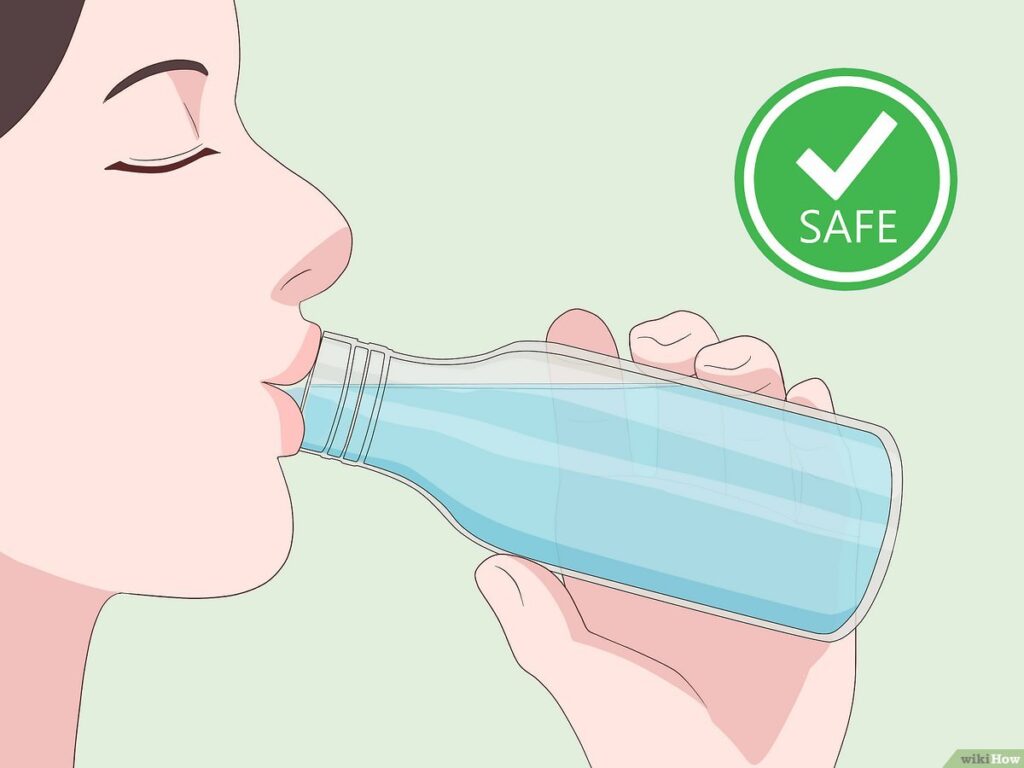Distilled water is a type of purified water distill that has gone through a process of distillation, where impurities and minerals are removed by boiling water and then condensing the steam into a separate container.
While drinking distilled water is generally safe for most people, there are some potential concerns to consider.
Health Concerns of Water Distill
Firstly, water distill is completely free of minerals, which means it lacks the beneficial minerals found in natural water sources, such as calcium and magnesium. While these minerals are not essential for survival, they can contribute to overall health and wellbeing.
Secondly, because water distill is so pure, it can be more aggressive at leaching minerals from the body than other types of water. This means that long-term consumption of distilled water can potentially lead to mineral deficiencies.
Additionally, some people find that distilled water has a flat or “dead” taste, and may prefer the taste of mineral-rich water.
Overall, while it is generally safe to drink distilled water in moderation, it may not be the best choice for long-term daily consumption due to its lack of beneficial minerals and potential for mineral deficiencies.

Health Benefits of Distilled Water
With the potential concerns associated with drinking distilled water, such as its lack of beneficial minerals, there are also some potential health benefits to consider.
- Reduced Contaminant Exposure: Distillation removes impurities and contaminants from the water, such as chemicals, heavy metals, and bacteria. This can be particularly beneficial for individuals with compromised immune systems or those who live in areas with contaminated water sources.
- Weight Loss: Drinking distilled water may help with weight loss as it is calorie-free and can help to flush out toxins and waste from the body. This can also help to reduce bloating and water retention.
- Detoxification: Because distilled water is so pure, it can be beneficial for detoxification purposes. By removing impurities and toxins from the body, distilled water can help to support the liver and other organs of elimination.
- Improved Digestion: Drinking distilled water may help to improve digestion by reducing the amount of minerals and other substances that can irritate the digestive system.
- Clearer Skin: Some people report that drinking distilled water helps to improve the appearance of their skin by reducing inflammation and flushing out toxins.
- Lowered Risk of Dental Problems: Distilled water has a low mineral content, which means it may be less likely to contribute to dental problems such as tooth decay and staining. This is because minerals in tap water can contribute to the formation of dental plaque, which can lead to tooth decay and other dental problems.
- Reduced Risk of Kidney Stones: The lack of minerals in distilled water may help to reduce the risk of kidney stones. This is because certain minerals found in other types of water, such as calcium and magnesium, can contribute to the formation of kidney stones in some people.
- Improved Hydration: Distilled water is pure and free of contaminants, which can make it easier for the body to absorb and utilize. This can help to improve hydration levels and support overall health.
- Potential Cancer Prevention: Some studies have suggested that drinking distilled water may help to reduce the risk of certain types of cancer, such as bladder cancer. However, more research is needed to fully understand the potential cancer-fighting benefits of distilled water.
- Environmental Sustainability: Distilled water can be produced using renewable energy sources, such as solar power, which can help to reduce the environmental impact of water production and distribution.
It’s worth noting that some of these potential health benefits are not unique to distilled water, and can also be obtained from other types of purified or mineral water. As with any dietary change, it’s important to speak with a healthcare professional to determine if drinking distilled water is right for you.

Alternatives to Distilled Water
If you are looking for an alternative to drinking distilled water, there are several options available:
- Spring Water: Spring water comes from natural springs and is generally high in minerals, which can provide some health benefits. However, it’s important to choose a reputable brand that tests their water for contaminants.
- Mineral Water: Mineral water contains naturally occurring minerals such as calcium, magnesium, and potassium, which can provide health benefits. Again, it’s important to choose a reputable brand that tests their water for contaminants.
- Reverse Osmosis Water: Reverse osmosis is a water filtration process that removes impurities and minerals from water. However, unlike distilled water, reverse osmosis water retains some minerals, which can provide some health benefits.
- Tap Water: Tap water is generally safe to drink in developed countries, but it’s important to be aware of any potential contaminants in your local water supply. In some cases, a home water filtration system may be necessary to ensure the safety and quality of your tap water.
- Filtered Water: Filtered water can be produced using a variety of filtration methods, such as activated carbon, ceramic, or UV filtration. These methods can remove impurities and improve the taste of tap water.
Ultimately, the best option for you will depend on your individual needs and preferences. It’s important to choose a water source that is safe, clean, and provides the minerals and nutrients your body needs. If you have any concerns or questions about your water source, speak with a healthcare professional or water specialist.


